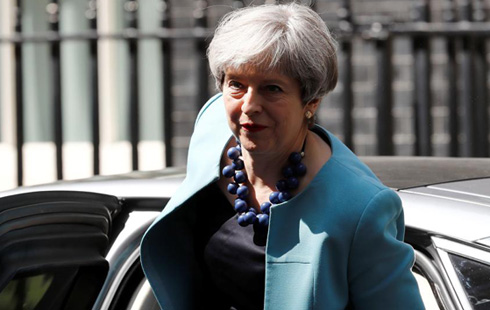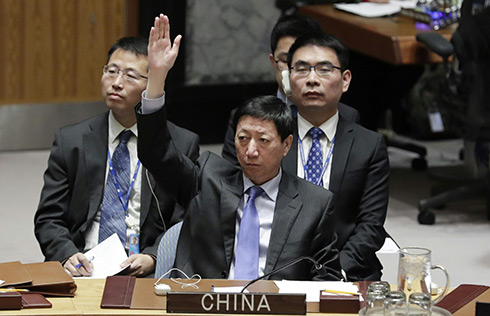Japan's ruling bloc forces enactment of controversial 'conspiracy' law
TOKYO - Controversial legislation to criminalize the planning of serious crimes was enacted by Japan's parliament on Thursday despite vociferous calls from opposition parties and the public.
Prime Minister Shinzo Abe's ruling coalition used its majority so the amendment to the law could clear a vote in an upper house plenary session after the Abe-led bloc contentiously bypassed an upper house committee vote.
The bypass tactic allowed the ruling camp to dodge the regular legislative procedures necessary for the legislation to be enacted, with the unorthodox move effectively forcing the contentious conspiracy bill into law without having to extend the current Diet session.
The ruling parties' tactic of bypassing the committee vote, while technically permissible, runs against the conventional legislative process and is rarely used in parliament.
The main opposition Democratic Party and three other opposition parties united in trying all possible measures to impede the bill and on Wednesday evening submitted a no-confidence motion against the Abe Cabinet.
The motion was subsequently rejected in a plenary session of the lower house in the early hours of Thursday morning.
Prior to this, a censure motion lodged against Justice Minister Katsutoshi Kaneda and a motion to dismiss the head of the upper house judicial affairs committee were both voted down on Wednesday.
The final upper house vote in which the ruling camp could utilize its majority finally happened early in the morning on Thursday after fierce wrangling between the ruling and opposition parties continued through the night.
Opposition parties, civic groups and ordinary citizens have staunchly opposed the bill as it has been scrapped three times before, with the changes made to the latest version by the ruling bloc not enough for the opposition camp to sign off on its passage into law.
In the version of the bill, which is aimed at amending the law on organized crime, the charge of conspiracy has simply been reworded as "preparations for terrorism or similar acts."
Versions that have since been scrapped applied to "broader" groups, but the current one specifying the legislation applies to "organized criminal groups."
The proposed charge would apply to groups of two or more people found to have planned one of 277 listed crimes, with at least one of them having made advanced preparations such as scoping out a potential location.
Opposition parties, legal scholars and civil rights groups, however, are adamant that the bill could be arbitrarily applied to ordinary citizens and allow law enforcement authorities undue rights to infringe on civil liberties by way of unrestrained surveillance, for example.
The bill was initially driven through a lower house committee amid scenes of mayhem as opposition parties called for the bill to be scrapped due to the potential for its use to infringe on civil rights.
Protestors with banners, placards and leaflets have been regularly rallying in their thousands around parliament in Tokyo of late seeking for the bill to be scrapped.
Protestors have been quoted as saying the government is "using" upcoming major international events to be held in Japan as excuses to force the bill's passage, and drew similarities with Abe's Liberal Democratic Party (LDP)-led thrusting of controversial security legislation through both chambers of parliament, which has vastly changed the nation's military dynamic.
The government's push for the latest version of the bill to become law is also, purportedly, to ratify the UN Convention against Transnational Organized Crime, which Japan signed in 2000.
The ruling camp has said that it is essential for Japan to also add its name ahead of hosting the Rugby World Cup here in 2019 and the 2020 Tokyo Olympics and Paralympics thereafter in 2020.
The opposition camp insisted, however, that due to the lack of sufficient deliberation in parliament, the bill does not have the public's support.
The bill also drew criticism from the UN special rapporteur on the right to privacy, Joseph Cannataci, who said it could lead to excessive constraints on the rights to freedom of speech and privacy owing to its potentially wide reaching scope.
All four major opposition parties claimed that the bill will erode the integrity of the criminal code in Japan by allowing people to be charged in connections with crimes that have not been committed.
Opposition parties and legal associations were adamant that the bill at the time remained vague and could be open to abuse by law enforcement personnel once enacted.
The Japan Federation of Bar Associations stated previously that the bill is ambiguous in its scope, and its vagueness regarding the definition of terrorist organizations and criminal groups could lead to the undue punishment of innocent civilians and groups.
Abe has previously resorted to using Wednesday's committee bypass tactic during his first tenure as premiere in 2007 to revise a public servants law.


























